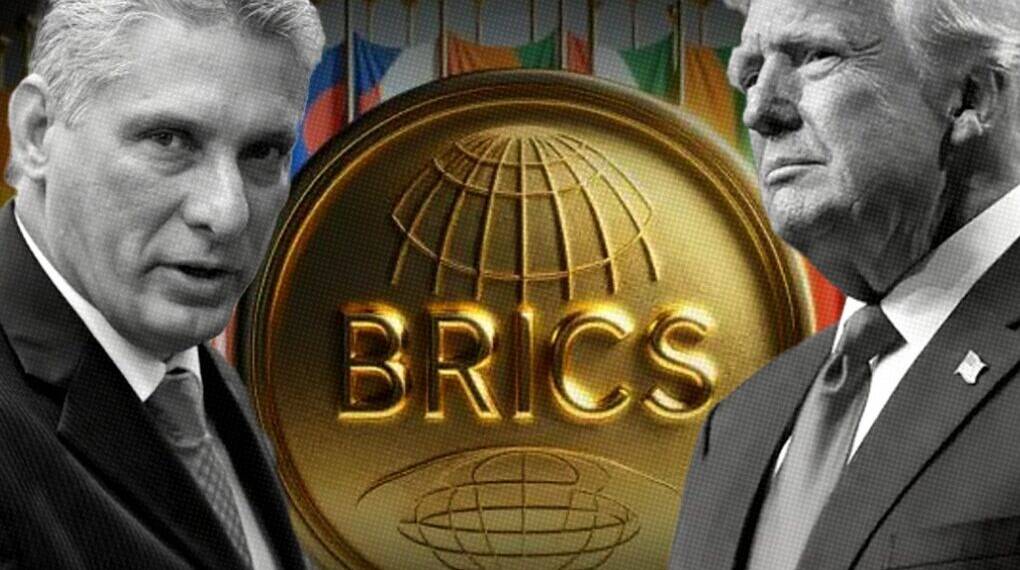Cuba’s official admittance to the BRICS Development Bank marks a pivotal chapter in the island nation’s resistance to more than six decades of U.S. economic isolation. Beyond symbolism, this move carries tangible geopolitical weight, underscoring how the BRICS bloc comprised of Brazil, Russia, India, China, South Africa, and a growing cadre of new members is directly challenging the Western-led economic order at a moment of accelerating global realignment.
The U.S. Blockade and Cuba’s Endurance
Since Fidel Castro’s 1959 revolution, U.S.-Cuba relations have been defined largely by confrontation. The full U.S. embargo, formalized in 1962, imposed a near-total ban on trade and financial activity with Cuba, aiming to asphyxiate the island’s socialist model and force political change. Over the ensuing decades, the embargo cut off Cuba from Western investments, credit, and even access to lifesaving medicines and technology.
Washington’s sanctions hardened further with the addition of Cuba to the State Sponsor of Terrorism List, the Cuban Democracy Act, and the Helms-Burton Act, each intensifying Cuba’s global isolation by pressuring third countries and international firms not to do business with Havana. Yet, contrary to U.S. goals, most of Latin America and Europe eventually normalized ties with Cuba, leaving Washington increasingly alone in its hardline stance.
Despite periodic diplomatic thaws, the embargo has remained largely intact, costing Cuba an estimated $130 billion in lost economic activity over sixty years. Against this backdrop, Cuba’s entry into alternative international financial institutions is nothing short of transformative.
BRICS: Building a Counterweight to the West
Since its inception in 2006, the BRICS group has grown from an economic collaboration platform into a robust geopolitical alliance that now wields immense global influence. Its formation of the New Development Bank (NDB) in 2014 was a direct response to what members see as the Western-centric bias of the IMF and World Bank.
Unlike these traditional lenders, the NDB focuses on financing for infrastructure and development, specifically tailored for emerging economies and, crucially, often operates outside the restrictive conditions typical of Western loans.
The BRICS also openly promotes new financial and trade systems designed to reduce dollar dependence—a process sometimes called “de-dollarization.” This includes funding projects in local currencies, discussing payment systems independent of SWIFT, and providing contingency funds to members facing volatility or sanctions.
In recent years, BRICS expansion to include new members like Egypt, Iran, Saudi Arabia, and now Cuba, has made the bloc an even more formidable alternative to G7 institutions.
The Significance and Strategic Implications of Cuba’s Membership
For Cuba, joining the BRICS Development Bank is a calculated escape from decades of financial strangulation. The move is both pragmatic, offering new sources of credit, investment, and technology and highly political, signaling a shift away from dependence on Western markets and norms. President Miguel Díaz-Canel hailed the admission as “a great hope for the countries of the South” and a step toward a more just and equitable international order.
Several factors make Cuba’s inclusion notable:
Access to Resources: The NDB opens new lines of credit for Cuba at a time when the country faces economic crisis—resources that had long been unavailable due to U.S. pressure on international banks.
Geopolitical Realignment: Cuba’s entry, strongly backed by heavyweights like Russia and China, signals that Havana is firmly anchoring itself in a multipolar world where rising powers offer economic and diplomatic alternatives to U.S. hegemony.
Logistical and Regional Significance: Cuba’s strategic location at the gateway to Latin America makes it a valuable commercial bridge for BRICS. Projects such as the modernization of Cuba’s Mariel port could, with BRICS backing, become a trade hub linking the Global South to Caribbean and Atlantic markets.
BRICS as a Challenger to the Western Bloc
BRICS is now openly contesting the Western-designed global order. The bloc’s latest declarations call for a “fairer and more representative international order”—a clear rebuke of U.S. and European dominance over institutions like the IMF and World Bank. By offering alternative models of development and multilateralism, BRICS has become a pole of attraction for countries historically excluded from Western-led globalization.
Yet, observers caution that internal divisions and divergent interests within BRICS could hinder its capacity to operate as a fully unified anti-Western bloc. But with nearly half the world’s population, significant portions of global GDP, and a rapidly growing membership, BRICS is now wielding enough influence to shape the debate over the future of international governance.
Also: US gives in, starts withdrawing sanctions imposed on Cuba
Cuba’s accession to the BRICS Development Bank is a historic pivot both for the island and for the evolving world order. It marks a decisive break from the cycle of Western-imposed isolation and opens new avenues for cooperation and growth through alternative institutions. For the BRICS, it validates their claim to represent the aspirations of the Global South and to provide concrete mechanisms for bypassing U.S. and European economic levers. In the decades-long battle between blockade and survival, Havana’s latest move is more than symbolic—it is a strategic realignment whose global reverberations are just beginning to be felt.







